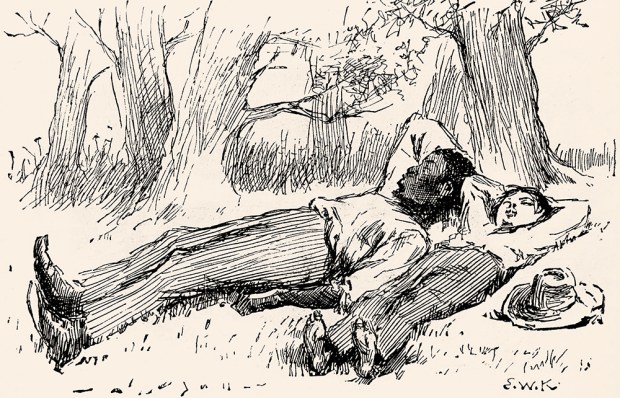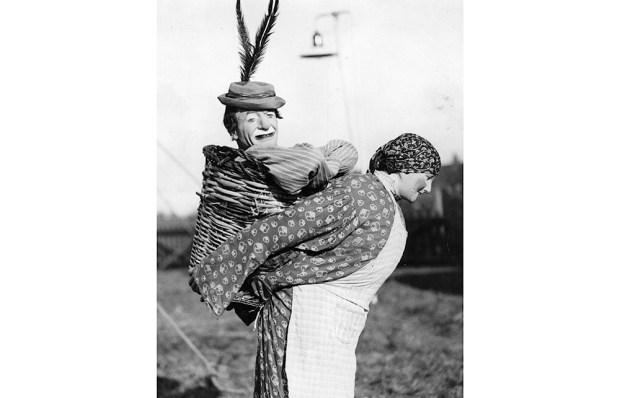‘Whatever your background,’ Margaret Thatcher told the Sun’s readers in 1983, she was determined that ‘you have a chance to climb to the top’. So, too, Tony Blair in 2004 (‘I want to see social mobility a dominant factor of British life’), David Cameron in 2015 (‘Britain has the lowest social mobility in the developed world — we cannot accept that’) and Theresa May in 2016 (‘I want Britain to be a place where advantage is based on merit not privilege’). Put another way, for the best part of four decades equality of outcome was largely on the back burner; equality of opportunity was, at least in theory, the name of the game, and social mobility became one of those motherhood-and-apple-pie causes, like corporate social responsibility in the business world, which it was almost rude not to sign up to and utter warm words about.
Perhaps no longer. The world of Covid, exposing huge material inequalities, has underscored the importance of collective rather than individual endeavour. The influential writings of David Goodhart have privileged the ‘somewhere’ hewers and drawers over the ‘nowhere’ brainboxes. Michael Sandel’s much discussed The Tyranny of Merit is firmly in the tradition of Michael Young’s dystopian The Rise of the Meritocracy, which in 1958 popularised the term and warned against an arrogant, heartless, self-serving new elite. The Social Mobility Commission barely makes a dent in the national conversation, let alone policy makers; and the one-time Red Wall votes happily enough for its Old Etonian betters.
But irrespective of how the issue plays out in the 2020s, the great strength of Selina Todd’s Snakes and Ladders, a history of social mobility (or its lack) between the 1880s and the present, is the richness of her presentation of it as a lived experience, whether upwards or downwards, and of course sometimes both during a lifetime. As in The People (2014), a key staging post in her own progression from a Newcastle comprehensive to the professorship of modern history at Oxford University, she marshals expertly a diverse mass of individual testimony, integrating it into a strongly argued broader narrative and analysis. The result, unlike most works of historical sociology, is intensely readable.
Which makes it all the more disappointing that Todd’s account has too many unforced factual errors. Churchill became prime minister in May 1940, not June; the New Left was launched after the Soviet invasion of Hungary in 1956, not after the 1959 election; the Donovan Commission on trade unions was initiated in 1965, not 1968; the statement that Anthony Crosland educated his children privately is at most only half true; Rupert Murdoch’s Wapping coup was in 1986, not 1984; the 2019 election was three years after the Europe referendum, not four; and, prompting a smile at the unlikely prospect, The Diary of a Nobody was written not by the high-minded and self-pitying novelist George Gissing, but by the humourists George and Weedon Grossmith.
Some of Todd’s most resonant passages are in her early chapters about a still almost wholly birth-determined society. A real-life Charles Pooter, the working-class Berwickshire bank clerk John Gray, suffers stresses and strains in his work-driven upwardly mobile life story; the anti-competitive ideals of the Labour movement’s pioneers, wanting all boats to rise equally, are transmuted between the wars into a narrower focus on advancing the individually talented or ambitious; and in 1939 a Mass Observation survey of social class finds a new breed of technocrats uneasy with any conventional categorisation.
Then came the war, with its dreams of an ensuing New Jerusalem; and Todd shows how Labour failed to come down decisively in favour of either equality of outcome (at the time usually called ‘fairness’) on the one hand or meritocracy (often called ‘democracy’) on the other. Instead, it understandably convinced itself, as did progressive thinkers generally, that the two goals were complementary rather than rival priorities.
The result, according to Todd’s persuasive reading, was a reputedly ‘golden age’ of social mobility — the quarter-century after the war — that in reality was seriously tarnished. Certainly there was no apparent shortage of classic working-class, grammar-school-educated, upwardly mobile meritocrats (Dennis Potter, Margaret Forster and Melvyn Bragg, to name but three). Yet the sober quantitative truth was not only that grammars benefited the middle-class intake far more than their working-class peers, but that around three-quarters of secondary school pupils at any one time had failed (or not taken) the 11-plus and were consequently at secondary moderns — from which the chances of social mobility, certainly upward, were virtually nil. ‘But Only Some Shall Have Prizes’ is the eloquent title of one of her chapters; and importantly, that fortunate if industrious ‘some’ usually meant white males, given how seldom the policies and circumstances encouraging a degree of upward social mobility, for instance in middle management, had a gender or ethnic as opposed to class dimension.
Instead, Todd locates her prelapsarian golden age in the routinely maligned 1970s. For those born between roughly 1945 and 1955, this was the decade, she argues, when a blessed cohort, women as well as men, benefited from the combination of an increasingly egalitarian society, a fully flowered welfare state and hugely expanded educational opportunities — a combination enabling young working-class adults to transcend their roots and follow their dreams, whether in social activism, or teaching in newly established comprehensives, or working for radically minded law centres.
It is a stimulating and necessary redress against the stereotypical caricature of the crisis-ridden, basket case 1970s, but I’m doubtful whether it convinces as a total picture. For one thing, the accelerating trend of participation in higher education abruptly ceased in 1970, not to recover until the late 1980s. For another, the long-run work of the veteran sociologist John Goldthorpe has conclusively shown that it was from the 1970s that relative social mobility (i.e. the relative life chances of children from less advantaged backgrounds compared to those from more advantaged) really began to stagnate.
For Todd, firmly of the non-Blairite left, the Fall took place in 1979 with the arrival of Thatcher, and it’s been pretty much dark ever since. She makes a plausible case. Deindustrialisation in the 1980s causing downward mobility for whole generations of men, more than outweighing the instant fortunes of City barrow boys (so memorably evoked in Caryl Churchill’s Serious Money); huge regional inequalities; a steadily growing gap between the wealthiest 5 per cent and everyone else; an accompanying ever-wider resources gap (now at least three to one per pupil) between private and state schools; the world of work ever more insecure; the devastating consequences of the financial crash (including systematic opportunity hoarding by those at or near the top of the ladder fearful of being swept downwards) — one way and another, it is unsurprising that in present-day Britain the crucial determinant of life’s destiny remains to a dismal extent who one’s parents are.
What to do? Todd’s ambitious wish list comprises providing universal, free and non-selective education from cradle to grave; rewarding work for its social value and expanding socially useful work; spreading opportunity across the country; focusing policy on women; redistributing political power; and, with echoes of Ruskin, choosing life not work.
My own specific emphasis would be on ending the educational apartheid. The inequalities between the private and state sectors are of a different order of magnitude to the inequalities within the state sector; fee-paying schools act almost by definition as engines of privilege; and — to use our current PM’s coinage — a lot more cornflakes would get shaken to the top if in the first place the packets were filled on a more equitable basis.
Got something to add? Join the discussion and comment below.
Get 10 issues for just $10
Subscribe to The Spectator Australia today for the next 10 magazine issues, plus full online access, for just $10.
You might disagree with half of it, but you’ll enjoy reading all of it. Try your first month for free, then just $2 a week for the remainder of your first year.














Comments
Don't miss out
Join the conversation with other Spectator Australia readers. Subscribe to leave a comment.
SUBSCRIBEAlready a subscriber? Log in